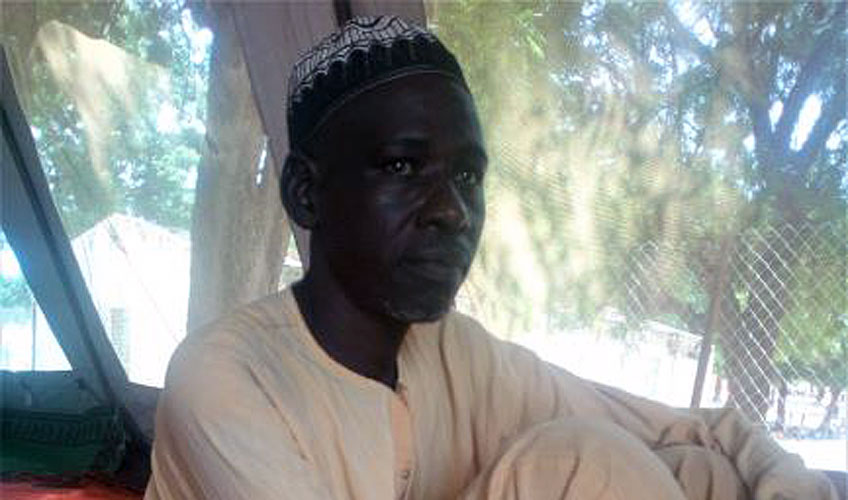Living in hope: Abdul’s story
They say hope is a good thing. This is probably true of 42-year-old Abdul, an indigenous Kashimri from Gulumba, Bama Local Government Authority (LGA), northeast Nigeria.

In 2014, two of Abdul’s young daughters were abducted by Boko Haram insurgents. Like any doting father Abdul was distraught, to the extent that he even contemplated suicide. Until attending an intra-community dialogue session organised by International Alert Nigeria and our local partner, Federation of Muslim Women Association of Nigeria (FOMWAN), the only thing keeping Abdul alive was hope. Hope that one day his two children would return home.
“I remember that day so vividly. It was around 9.30 in the morning when Boko Haram barged into my house. They demanded I hand over every penny I had, leaving me with nothing. Months later, another set came and demanded for my daughter’s hand in marriage. I tried to explain that she was too young for marriage, she was only thirteen, but they did not want to know. They threatened to kill me if I did not let her go. I had no choice. A month later, they came back and demanded her younger sister, who was only eleven. Again, I had no other choice but to let her go too. They stayed in our village for about a month before leaving for Sambisa Forest. I have not seen my two daughters since,” Abdul recalls.
Abdul goes on to say, “before the insurgency, I was a successful farmer and businessman. I bought beans, corn and millet, and sold them to people at Gulumba market. I had two wives and thirteen children.”
Abdul currently lives with members of his family in Bama internally displaced persons camp, waiting for the return of his two young daughters who are still in captivity.
Recently Abdul participated in International Alert’s community dialogue sessions, where messages on reconciliation, dialogue, acceptance of survivors and repentant perpetrators were shared. He said he felt relieved after the sessions, that the discussions had changed his earlier opinions on the incident and his plight, and was helping him cope with his daughters absence.
“I was invited to the sessions by a community leader in the camp. At first, I didn’t know what to think of them. However, the sessions have been helpful, especially with regard to persevering and dealing with the situation I find myself in. I’ve learned to forgive repentant Boko Haram, even though they abducted my daughters.
We must forgive the past in the interest of peace and development. As a father and a community member, I have to play my part in helping those returning from Boko Haram captivity to be reintegrated back into the community without stigmatisation and rejection. This will include my girls when they do finally return.
“I want to offer full support to every Boko Haram survivor and ensure they are supported by every member of the community. The sessions have been helpful to me, and I hope to pass on the knowledge to others within my community,” says Abdul.
About the project
‘Supporting vulnerable communities and conflict-sensitive reintegration in northeast Nigeria’ was a project to help reintegrate survivors of sexual violence by Boko Haram as well as support people internally displaced by the conflict.
International Alert Nigeria worked in three camps for internally displaced people and one host community in Maiduguri, and another community in nearby Bama, to help those affected by the violence reintegrate back into society and move forward with their lives.
This included holding victim support and family dialogue sessions – especially women, girls and children, running public awareness campaigns on stigma reduction, and training local leaders on peacebuilding and non-violent conflict resolution.
Alert worked on this project with the following local partners: Federation of Muslim Women’s Associations in Nigeria (FOMWAN), Health Care Development Focus Initiative (HECADF), Herwa Community Development Initiative.






